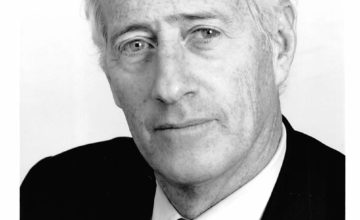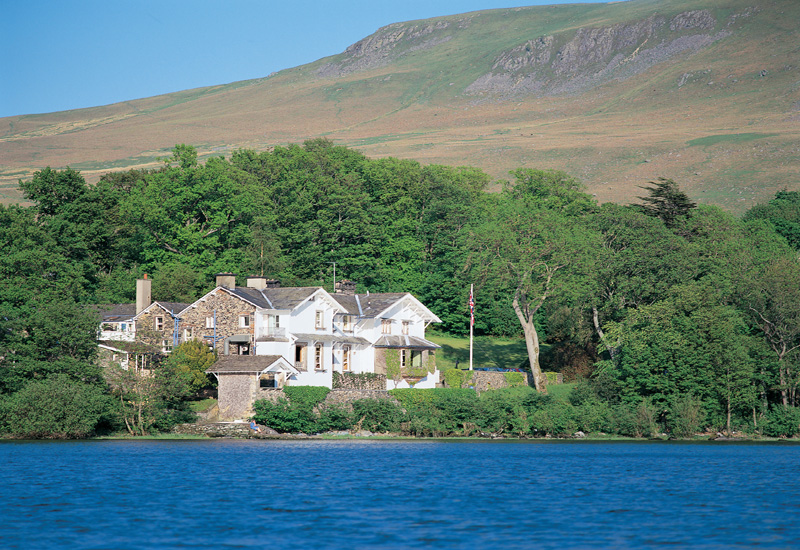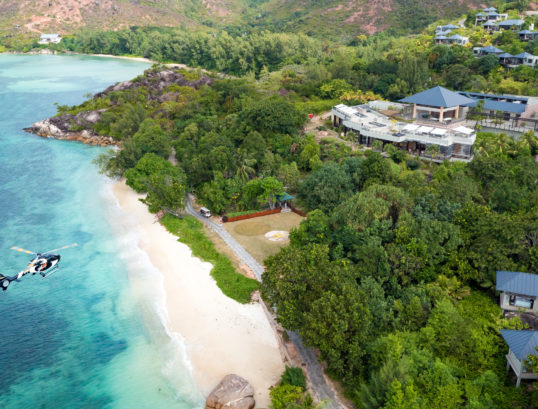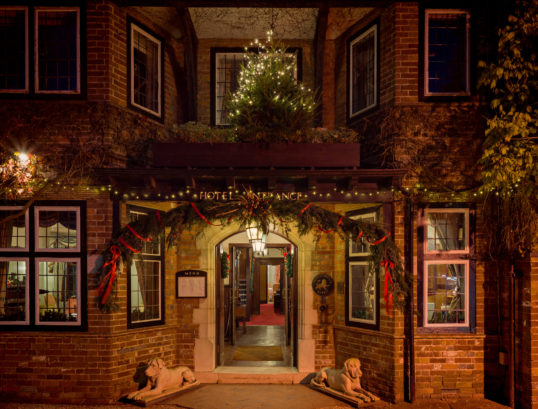
By Adam Raphael
The news that Sharrow Bay has gone into liquidation owing more than £2 million is a sad event. The original country house hotel, Sharrow Bay was a delight; it spawned many imitators. Paradoxically its closure is good news for all those who treasure memories of their stays there on the banks of Ullswater. Great hotels in glorious locations rarely die. The fortunes of Sharrow Bay can be restored by new owners. But what caused the downfall of this wonderful hotel, leaving suppliers and guests in the lurch? Covid-19? If only it were that simple.
Sharrow Bay was opened after World War 2 by the late Francis Coulson who with his partner Brian Sack created an informal place to stay where the food, comfort and welcome were outstanding. Francis was an inspired cook, Brian a charming, urbane host. There was no reception desk, the atmosphere was relaxed, there were elegant statues, objets d’art, and masses of books—the country house hotel was born. The Good Hotel Guide’s first edition in 1978 noted: ‘A highly civilised and distinguished hotel. Here you will not only be peaceful but pampered.’
Sharrow Bay prospered for more than half a century. Its many famous guests included David Cameron and Heston Blumenthal. Sir Paul McCartney famously proposed to Heather Mills while staying there. It invented the famous sticky toffee pudding. After the deaths of its founders, the hotel was sold in 2003 to Andrew Davis, a property tycoon, for £5 million. Davis, who presided over the Von Essen Hotel Group, proceeded to buy many of Britain’s finest country house hotels.
An amusing, volatile character, Davis knew more about helicopters than he did about hotels. But puffed up by lavish PR and an acquiescent media, he appeared unstoppable. He also had influential friends. He was hailed by Michael Winner, the late film director as ‘‘a brilliant businessman…owner of 29 of the greatest hotels in the world’. Even if he had been an inspired hotelier, running a collection of highly individual properties such as Cliveden, Chewton Glen and Sharrow Bay was not a sensible proposition. But Davis didn’t care. He liked to boast that he was a property man at heart, and that the value of his properties more than outweighed any loans on them: ‘I’m a real-estate boy. We don’t do goodwill.’
Goodwill, however, matters. After a couple of years, the Guide, alerted by readers to poor service and failing standards, omitted all but one of the Von Essen-owned hotels, an action that provoked threats of legal action. It was soon clear not just to the Guide, but to other industry observers, that this extraordinary buying spree would almost certainly end in tears. Eventually it did. In 2012 the Von Essen group collapsed with debts of nearly £300 million, most of which was owed to banks, notably Barclays and Lloyds, which bizarrely had ignored the many danger signs.
In the subsequent fire sale, Sharrow Bay was bought by a private equity company, Hamilton Bradshaw, managed by the former Dragons’ Den investor, James Caan for £1.5 million. A year later, Andrew Davis bought it back from Caan and claimed to have invested £1.2 million in improvements. The second liquidation of the hotel he now blames on Brexit, road repair works, and the pandemic. Clearly, none of this helped. But the real reason lies in Davis’s character, he is not a hotelier. Just one of many stories will suffice. Andrew Davis arrived one day in his personal helicopter over Lewtrenchard Manor, one of his country house hotels. He radioed down to the hotel that he and his guests intended to land on the lawn and have lunch. That put the general manager in a panic. He rang Davis’s helicopter company, to say that a wedding party was engaged in clay pigeon shooting on the lawn, and that it had hired the hotel exclusively for the day. A terse reply came back from the helicopter: ‘Tell them to move or I’ll fucking land on them and throw them out of my hotel.’ The shooting party was moved off the lawn to its disgust. The Guide’s definition of a good hotel is where the guest comes first.
- See our current pick of the best hotels in the Lake District.


